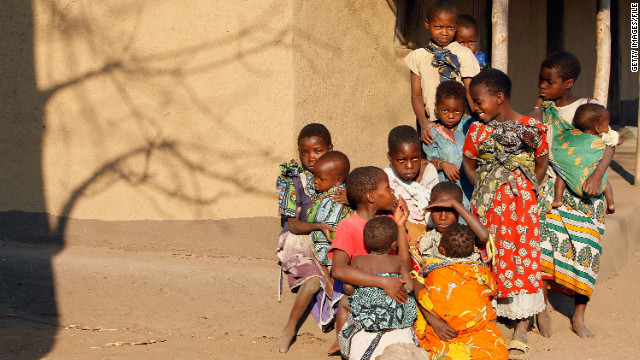OVER the past few decades, many governments have introduced measures to promote a range of rights for persons with disabilities. In 2006, the UN adopted the International Convention on Rights of Disabled People (CRPD), and many governments and international development agencies are turning their attention to the goal of including persons with disabilities in development.
In terms of domestication of the Convention, it is imperative to note that ratification of CRPD was meaningful because the Malawian government also enacted the long-awaited Disability Bill whose content I will touch on briefly.
The enactment of the Disability Act has been a milestone in the history of the disability advocacy movement, as the legislation promotes the rights of persons with disabilities and allows them to play a participatory role in society in Malawi.
The law has also ensured that persons with disabilities access the same fundamental rights and have the same responsibilities as any other citizen of Malawi and that they are included in all political, social and economic development initiatives.
The Disability Act reinforced the “Equalisation of opportunities for persons with disabilities” in the following parts as follows:
Part I contains preliminary provisions such as definitions of certain terms used in the Bill and general principles.
Part II provides for the general administration and implementation of the Act. It gives powers to the minister to set up committees, and establishes the Malawi Council for Disability Affairs (MACODA), also known as “the Agency”.
The Agency will be an arm of Government and will be responsible for the promotion of the equalisation of opportunities for persons with disabilities, advise the minister on all matters affecting persons with disabilities, register persons with disabilities and regulate relevant organisations.
Part III provides for rights of persons with disabilities and places obligations on the Government and other stakeholders to ensure that those rights are enjoyed by persons with disabilities. The rights, among others, include health, accessibility to the physical environment, transport, information, education, housing and employment.
Part IV provides for the establishment of the Disability Trust Fund, the money which shall be drawn from the disability levy established for the purpose of supporting programmes aimed at mainstreaming disability and promoting inclusion.
Part V contains miscellaneous provisions such as restrictions on seeking contributions from the public to avoid abuse by individuals, organisations of and for persons with disabilities, and other non-governmental organisations (NGOs), investigations to be carried out by the minister or any designated agency where violations of the Act are reported, powers of the agency to impose administrative penalties for some offences under the Act, and powers of the minister to make regulations and repeal of the Handicapped Persons Act.
The government of the Republic of Malawi last year repealed the Handicapped Act of 1971 in order to align the law to international human rights instruments.
The Act is very progressive despite the fact that it has not adequately addressed the plight of the deaf in Malawi because sign language is not included and to be used on State-owned TV which the Zambian Disability Act has properly addressed. In summarising the new Disability Act of Malawi, I will also be touching on the Zambian Act number 6 of 2012.
The Government is currently developing the National Disability Policy which may take into account the concerns of the deaf and other important areas that are not addressed by the new Act.
Like any other developing nation, the new law is always received with perception and commendation but the country has to move. People with visual impairments complain that the bank notes which Malawi recently introduced do not have features to enable them distinguish and identify the different denominations.
We also heard here in Zambia the president of the Zambia National Association for the Blind in rural areas complain about the new notes’ features, and the list goes on.
The simple fact is that disabled people are among the most vulnerable, disadvantaged and marginalised in Malawi just like here in Zambia and are excluded from the enjoyment of their rights despite the constitution of Malawi guaranteeing human rights to all people without discrimination.
But like many other African governments, disability issues are not taken seriously but for now, both the Zambian and Malawian governments should be commended for this great step to reform disability rights.
This demonstration should be followed with keen interest as it might be about time to give the disabled their right place in society as the current governments have shown that they are committed to protecting the rights of disabled people.
While the constitution of Malawi guarantees the right to non-discrimination on the basis of disability under Section 20, in reality people with disabilities are discriminated against in many ways, often indirectly.
For example, if the law allows disabled people to be enrolled in schools but there is no provision of learning materials in Braille or use of sign language for persons with visual and hearing impairments, respectively, then there is indirect discrimination on the basis of disability since the disabled will be allowed to attend class but will be excluded from actual learning.
And until very recently, the law relating to people with disabilities was based on the Handicapped Persons Act of 1971 which did not provide for any rights to the disabled.
The very outdated Act was based on the old-fashioned medical or welfare model of disability, which does not perceive disability as a human rights issue but as a condition of ‘pity’ requiring clinical interventions or charity in order to help the disabled ‘fit into society’.
However, this changed on May 24, 2012 when Parliament finally passed the Disability Bill – almost eight years after it was drafted! Unlike the previous government which showed no desire to see the law enacted, Joyce Banda’s government passed the Bill into law within two months of assuming power.
The new Disability Act is based on the social model of disability, which perceives disability as a human rights issue and attributes the ‘problems’ associated with disability to the environmental barriers, including individual prejudices and institutional discrimination which impose restrictions upon the disabled.
The Act provides disability-related definitions that mirror the definitions in the UN Convention on the Rights of Persons with Disabilities (CRPD) to which Malawi is a State party.
The Act defines discrimination as ‘distinction, exclusion or restriction on the basis of disability, which has the purpose or effect of impairing or nullifying the recognition, enjoyment or exercise, on equal basis, of any human rights or fundamental freedoms in the political, economic, social, cultural, civil or other field’.
The Act guarantees the right to non-discrimination in the fields of health, education and training, social life, culture, sports, recreation, employment, public and political life/affairs, housing and many others – and seeks to ensure that people with disabilities have access to all places, including buildings.
The Act also grants disabled people, who suffer from disability discrimination, remedies enforceable by the courts. Individuals and organisations who practise disability discrimination may be fined or imprisoned and may have their licences revoked.
Furthermore, the Act requires the introduction of a national sign language and establishes a trust fund to pool resources for programmes aimed at ensuring the mainstreaming of disability.
However, the Act could have gone further. It does not provide for the collection of disability statistics and data, or for the establishment of an independent mechanism involving national or other human rights institutions to monitor its implementation, yet these are crucial in the promotion of disability rights.
Lastly, the Act does not make reference to the role of disabled persons’ organisations, persons with disabilities or children with disabilities in its implementation although disability rights advocates emphasise the need for their active participation.
Regardless of its technical strengths and weaknesses, the real test of the Disability Act will be whether or not it has an impact in practice by helping to promote the rights of people with disabilities.
And the challenge is huge. Ninety-eight per cent of children with disabilities do not access education. Most places and buildings are not accessible to the disabled, especially wheelchair users.
People with mental disabilities are not perceived as disabled people who are entitled to enjoy equal human rights but ‘insane’ or ‘mad’ and are usually institutionalised in mental hospitals.
The new law is certainly an advance on the previous 40-year-old law – and the Government should be congratulated for passing it so quickly when there are so many issues to deal with.
But to really improve the lot of the people with disabilities, the Government will have to back up the new law with a clear public commitment to implement its provisions so that the new policy has a positive impact.
In Southern Africa, there is lack of awareness about disability issues and inadequate implementation of disability policies among lawyers. None of the region’s universities offers courses with a focus on disability rights and anti-discrimination law.
The first phase of the disability rights and law school project carried out by OSISA’s Law Programme produced a report based on nine Southern African countries that found “…no…‘stand alone’ courses on disability rights” in the region. This is very sad.
As such, four senior lecturers from universities in the region were selected to complete their masters, through the LLM Human Rights programme at the University of Pretoria’s Centre for Human Rights (CHR), with a special focus on disability rights.
After graduation in December 2011, the lecturers from Malawi, Mozambique and Zimbabwe began implementing the disability rights course at their respective institutions.
This core grant provides support to the universities to implement these courses for a year, conduct outreach activities and, in two instances, establish legal clinics specialising in disability rights.
This grant also provides for the University of Pretoria’s CHR to coordinate, support and monitor the work of these universities.
The overall goal of the project is to develop a pool of Southern African students with specialised skills and knowledge in disability rights law.
It also seeks to train a series of Southern African law lecturers who will champion disability rights work at the tertiary education level.
Finally, it is hoped that regional and continental policy changes to disability rights, and anti-discrimination practices, should be facilitated through knowledge, skills and ideas shared between universities and governments if a disability right is to be achieved in Africa.


.jpeg&w=60&q=100&h=60)





.jpeg&w=60&q=100&h=60)




